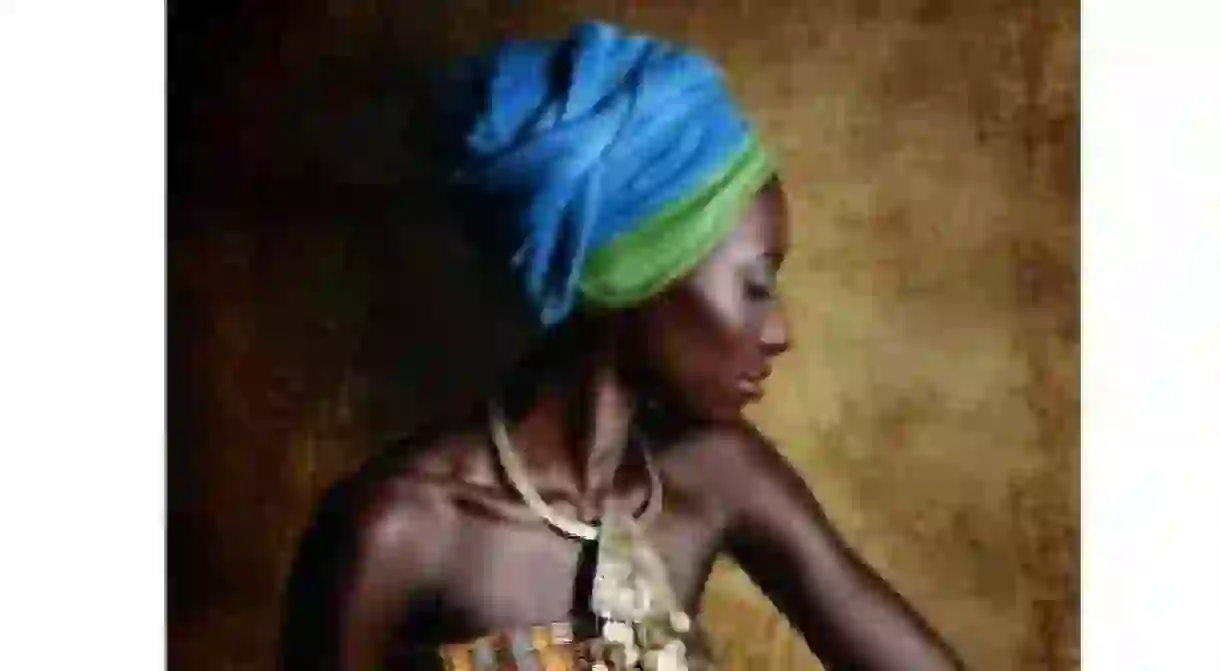The 4 Female African Contemporary Artists You Should Know

The western art world is beginning to focus on contemporary female African artists and their creative expression. These artists analyze the complex notions of beauty and the feminine body through different media. Exploring issues of femininity, beauty, body, race, gender, submission, power and territory, their works range widely over an assortment of contemporary subjects.

These four female African artists are trying to take on the challenge of questioning their society and how they fit into this contemporary environment as women and artists, and how they relate themselves to the western world as Africans.
Their work explores the discourse between western women versus African women, male versus female, tradition versus modernity, and local versus global. The female artist in Africa is still secondary compared to her male counterparts. This inequality is exemplified by the low number of women participating in exhibitions and workshops.
These artists broke the barrier of the male-dominated art world, proving and celebrating the female artistic identity. They analyze the challenges faced by contemporary society without deference. They overturn preconceptions and taboo, they bring us into their intimate lives and they are not scared of revealing their and our darkest fears.
The Female Artists’ Platform in Lagos has been promoting and sustaining female African artists since 2008. Founded by the non-profit organization African Artists’ Foundation, it aims to draw attention to female artists and designers living and working in Africa, unearthing and developing new talents, introducing new art forms, and highlighting the diversity of women who are exploring ways to express themselves through visual art.
The Female Artists’ Platform program is designed to help, encourage, challenge and develop women interested in visual art, and to provide unimpeded opportunities for the expression of their perspectives and reactions.
African Artists’ Foundation, 54 Raymond Njoku Street, Ikoyi, Lagos, Nigeria, +234 8097713079

Joana Choumali
Joana Choumali (b. 1974) is a freelance photographer based in Abidjan. In her last work, Awoulaba/taille fine (awoulaba means ‘beauty queen’ in Baule language), Joana investigates the concept of beauty and bodily perfection. What is it to be considered to have a perfect body? She began her photographic composition by documenting the local manufacturers in Cote d’Ivoire that produce mannequins with body shapes more associated with those of African women. All of this constitutes the hybrid representations of what a ‘perfect woman’ is supposed to be: the real one and the perfect one, all at the same time. The final image results in a disconcerting and destabilizing ensemble of shapes, symbols, colors and ideas.

Namsa Leuba
Namsa Leuba (b.1982) is a half-Guinean and half-Swiss photographer. During the past two years, her research focused on African identity through western eyes. In the series The African Queen, Namsa was inspired by African women. She tries to re-contextualize African elements through her camera, bringing these elements into a framework for occidental taste and aesthetic choices. She produces what she calls an ‘intervention’ on the models and on their typical African clothes. She tries to change the classic western perception of African culture. In every photograph Namsa always reconciles these two cultures. As these traditional objects become increasingly distant and unfamiliar in a fashion and western context, this body of work sheds light on two different cultural aesthetics through the personal experience of multi-cultural heritage and the performative intervention of the photographer.

Jenevieve Aken
Jenevieve Aken (b. 1989) is a Nigerian photographer; she focuses on documentary photographs, self-portraits, urban portraits and cultural and social issues. The Masked Women (2014) is a self-portrait series where she explores the role of female gender in Nigerian society. Through these images she represents the solitary lifestyle of the ‘femme fatale’ character. The use of masks and the body language evokes the isolation of women in Nigerian society that has limiting and strictly defined roles of what the ‘perfect’ woman should be. The series represents the growing number of independent, professional women in Nigeria who at once assert their autonomy while also being ostracized by cultural norms that don’t let Nigerian women have an active role in their society.
Njideka Akinyuli Crosby
Njideka Akunyili Crosby (b. 1983) was born in Nigeria; she left her native country at the age of 16 to pursue her studies in USA. In her intimate art, Njideka mixes the classic academic western technique with her personal life, Nigerian and American culture and African traditions. She composes scenes from her everyday life between two countries, using western elements like portrait and still life to realize non-western scenes. Her work always features scenes of intimacy of she and her husband. She carefully chooses and integrates different materials into her painting, especially small photographic paper pieces. Nijdeka’s art is a personal metaphor of memory and the definition of her identity between two societies.













